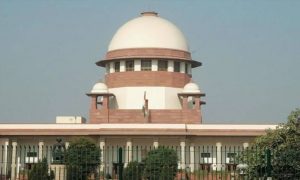Supreme Court Of India Mentioned About Two “Parallel Systems” Of Justice::

The Supreme Court of India mentioned about two “parallel systems” of justice — one for the rich and the other for the poor.
- It was dealing with a case where the bail granted to the husband of a legislator in Madhya Pradesh.
- Madhya Pradesh High Court had granted the bail. The Supreme Court termed the grant of bail to a man with criminal antecedents who has been evading arrest a “grave error”
- India cannot have two parallel legal systems, one for the rich and the resourceful and those who wield political power and influence, and the other for the small men without resources and capabilities to obtain justice or fight injustice.
- The existence of a dual legal system will only chip away the legitimacy of the law.
- Independence of the judiciary is the independence of each and every judge. The case pointed to a larger malaise of application of political pressure on trial judges.
- Security of Tenure: Once appointed, the judges cannot be removed from the office except by an order of the President and that too on the ground of proven misbehavior and incapacity (Articles 124 and 217).
- The salaries and allowances of the judges are fixed and are not subject to a vote of the legislature.
- Powers and Jurisdiction of Supreme Court: Parliament can only add to the powers and jurisdiction of the Supreme Court but cannot curtail them.
- No discussion in the legislature of the state with respect to the conduct of any judge of Supreme Court or of a High Court in the discharge of his duties.
- Both the Supreme Court and the High Court have the power to punish any person for their contempt.




